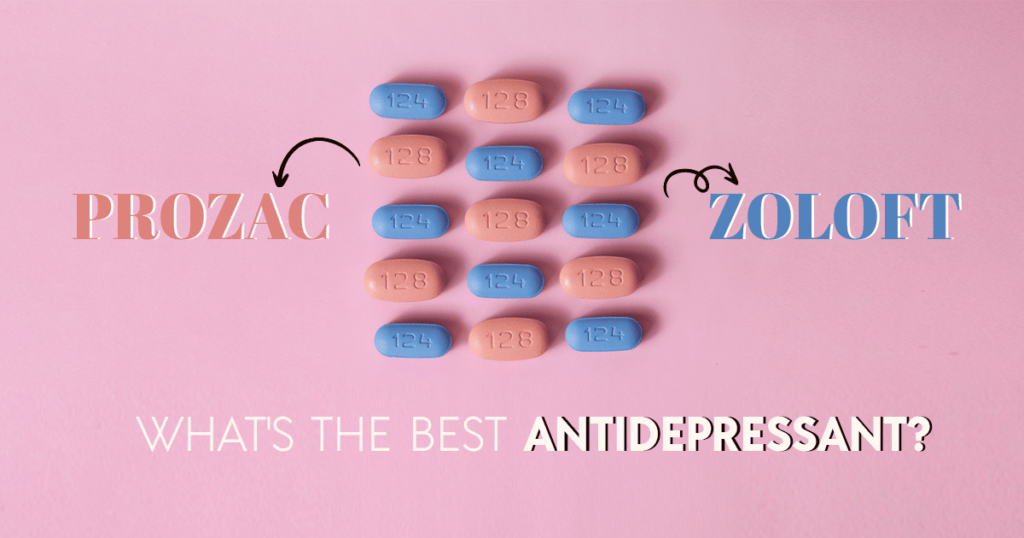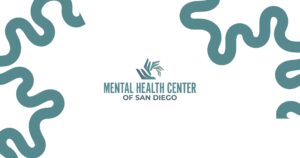Antidepressants are prescription medicines that help with symptoms of not only depressive disorders. These medications can help with anxiety and social anxiety disorders, seasonal affective disorder, dysthymia, and other related conditions.
When comparing Prozac vs. Zoloft, there are more similarities than differences between the two, yet every medication can affect people differently.
How do Antidepressants Work?
The goal of taking an antidepressant is to correct neurotransmitter imbalances in the brain, which researchers believe are responsible for behavior and mood changes. These treatments were developed initially in the 1950s, and over the past few decades, their use has gone up.
There are a few categories of antidepressant medications, which are:
- Serotonin and noradrenaline reuptake inhibitors (SNRIs): This class is for the treatment of major depression and mood disorders. SNRIs might be prescribed less commonly for anxiety disorders, fibromyalgia, and attention deficit hyperactivity disorders. This class of medicines works by raising levels of serotonin and norepinephrine, which are neurotransmitters that help stabilize your mood. Examples include Cymbalta and Effexor.
- Selective serotonin reuptake inhibitors (SSRIs): This class of medication is the most commonly prescribed type of antidepressant. They tend to be effective, with fewer side effects than other medicines. When someone takes an SSRI, it blocks the absorption of serotonin in the brain. The effects make it easier for your brain cells to send and receive messages, improving and stabilizing your mood. Both Prozac and Zoloft are SSRIs, as are Celexa, Lexapro, and Paxil.
- Tricyclic antidepressants (TCAs): These medications help with depression, and some forms of anxiety, and may help control chronic pain.
- Monoamine oxidase inhibitors (MAOIs): MAOIs were the type of antidepressant treatment most commonly prescribed before SSRIs and SNRIs were introduced in the marketplace. These medications help break down neurotransmitters like serotonin, so more circulates.
Any type of antidepressant can take a few weeks to notice the effects. Unfortunately, some people will stop using them because they believe they aren’t working during that time.
What is Prozac?
We talked briefly above about Prozac, classified as an SSRI. Prozac is a brand-name drug. The active, generic ingredient is fluoxetine.
So, is Prozac a happy pill? This is a common question people have, and the reality is that it can help with a number of mood-related conditions, but it tends to even out how you’re feeling rather than being a so-called happy pill. With any antidepressant, including Prozac, it’s important to manage your expectations and give it time to start working.
Most people also do best when they participate in therapy simultaneously when taking an antidepressant.
Prozac is approved for the treatment of:
- Major depressive disorder (MDD)
- Obsessive-compulsive disorder (OCD)
- Panic disorder
- Bulimia nervosa
- Premenstrual dysphoric disorder (PMDD)
As far as Prozac for anxiety, it can also be helpful. Prozac and other SSRIs treat anxiety because they aren’t habit-forming and are generally safe for long-term treatment.
The U.S. National Library of Medicine says that based on clinical studies, Prozac effectively manages symptoms of certain anxiety disorders, including panic disorders. However, there aren’t many studies that look at Prozac for generalized anxiety disorder (GAD).
What is Zoloft?
Zoloft is also the brand name of an SSRI. The generic name is sertraline. Zoloft is used for the treatment of depression and OCD, as well as:
- Panic attacks
- Post-traumatic stress disorder (PTSD)
- Social anxiety
- PMDD
When someone has been prescribed Zoloft, their doctor will usually begin them on a low dose as with other SSRIs. Over several weeks, the dose might increase. Doses usually range from 50 mg to 200 mg.
Prozac vs. Zoloft
Both Prozac and Zoloft are prescription antidepressant medications. These medications are both selective serotonin reuptake inhibitors or SSRIs. Serotonin is a chemical that’s naturally occurring and creates feelings of well-being.
Both Prozac and Zoloft work by impacting the serotonin levels in your brain. By balancing these chemicals, the drugs can improve your appetite and mood. Many people find they help them sleep better and increase their energy levels.
Both medicines can also help with compulsive behaviors, fear, and some types of anxiety disorders.
There are some differences in the medications.
For example, only Prozac is a treatment for bulimia. On the other hand, only Zoloft is for PTSD and social anxiety disorder.
Side effects and possible adverse events are similar with both each prescription medication and can include:
- Nervousness
- Dizziness
- Sexual dysfunction and sexual side effects, including erectile dysfunction
- Nausea and vomiting
- Insomnia
- Weight gain
- Headache
- Weight loss
- Dry mouth
Zoloft is more likely to cause diarrhea than Prozac, while Prozac is more often associated with sleep problems and dry mouth. Both antidepressant drugs are less likely to cause weight gain than other older antidepressants.
Both medicines are effective for various mental health conditions, and they work in the same way in the brain and body. When comparing Prozac vs. Zoloft, the common side effects are also similar, although some research shows that one may be more effective at treating particular conditions.
You should talk to your doctor about your symptoms, and they can help you decide whether Prozac vs. Zoloft could be better for you.
For some people with antidepressants, it’s a process of trial and error.
What is the Most Effective Antidepressant for Anxiety?
Determining the most effective antidepressant for anxiety is based on your personal needs and how medications affect you. For example, some people might have better outcomes with Zoloft than they do with Paxil, or perhaps they try several to find one that works for them.
Regardless of which medicine you’re prescribed, some things you can do to make sure it is most effective include:
- Being patient. It can take weeks to see improvements after you start a new medication, and it can take six weeks or more for the full effects to happen. You may also be gradually increasing your dose during this time. If you’re worried your medicine isn’t working or are experiencing adverse effects, talk to your health care provider.
- Consistency is key. Make sure that you’re taking your medication every day and at the same time, if possible.
- Wait out the side effects if you can. Most antidepressants will initially have side effects, but they get better as your body adjusts. Talk to a medical professional about anything you’re experiencing, especially severe side effects.
- Explore other available options if a medicine doesn’t work. If you don’t notice improvements in your anxiety symptoms or other mental health conditions, or the side effects don’t get better, you can talk to your doctor about a few options. You can change your dose, try a different antidepressant, or your doctor might add another medication, which is known as augmentation. For some people, a combination of medicines works best.
- Don’t use drugs or alcohol. In the long run, they make symptoms of anxiety and depression worse, and they may negatively interfere with your medication.
- Don’t stop taking an antidepressant without talking to your doctor. You could experience withdrawal symptoms and likely need to taper your dosage.
Finally, try psychotherapy. Also known as talk therapy, psychotherapy can significantly improve the effects of your medication. If you’d like to learn more about talk therapy and mental health treatment, we’re here to answer questions you may have or give an overview of what’s available.
To learn more about treatment options for depression in San Diego call (858) 258-9883 and talk to a caring member of the Mental Health Center of San Diego team today!















